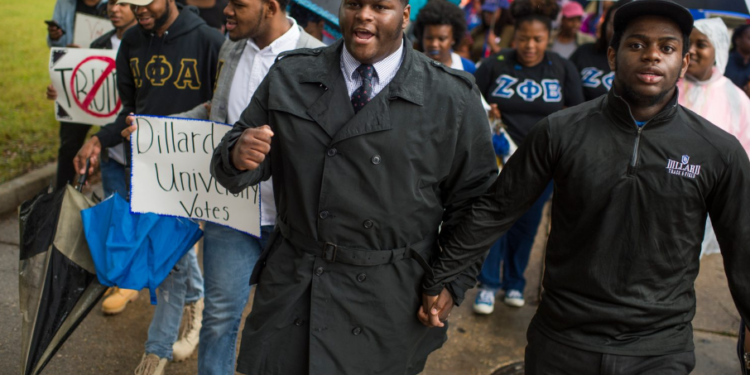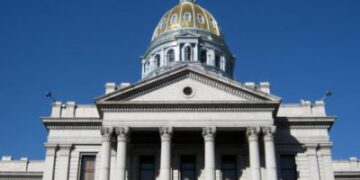Oct 15, 2024 Story by: Editor
As over 700,000 students returned to schools across Louisiana recently, a troubling reality accompanied them: Black history has been excluded from their classrooms.
In a growing number of states, lessons on Black history and systemic racism are being restricted, and Louisiana has joined this trend. Governor Jeff Landry issued an executive order in late August that bans critical race theory (CRT) in schools. This ban adds to the existing limitations on such teachings, making Louisiana the latest state to prohibit antiracist education. Incredibly, laws preventing honest discussions about race now impact nearly half of all public school students in the United States.
Landry argued that teaching about systemic racism is “divisive,” suggesting that students should focus on “American exceptionalism.” In a press release, he stated, “Teaching children that they are currently or destined to be oppressed is wrong.”
This notion of “divisiveness” is far from new. Throughout history, those in power have branded antiracist education as dangerous and inflammatory. Historian Jarvis Givens wrote, “Black education was a fugitive project from its inception,” adding that it was “outlawed and defined as a criminal act regarding the slave population in the southern states and, at times, an object of suspicion and violent resistance in the North.”
This history of suppressing Black education and the ongoing struggle for liberatory education hit close to home for me recently. While tracing our family history, my father, Gerald Lenoir, made a remarkable discovery. In a courthouse in Mississippi, he found documents signed by my enslaved great-great-great-grandfather, Caleb Ratcliff, and his daughter, Laura Lenoir, after the Civil War. In a time when many formerly enslaved people, denied literacy, had to sign with an “X,” Caleb and Laura boldly wrote their names, defying the barriers meant to silence them.
Given that literacy was illegal for enslaved people, Caleb and Laura may have learned to read and write secretly, risking punishment, or they could have acquired literacy during Reconstruction when Black educators were instrumental in establishing public schools in the South. Regardless of how they learned, their commitment to education lived on through my great-grandfather, York Alonzo Lenoir, who went on to attend Alcorn State University and became an educator.
York married Ivy Anita Darensbourg, a teacher and poet from Louisiana. Together, they started schools in Louisiana and Mississippi, becoming beacons of hope for Black communities.
This is the legacy that Landry’s actions seek to erase.
The roots of Black education’s struggle trace back to the earliest days of slavery in the Americas. Angela Davis highlighted that “Historically, you might argue that Black people in this country value education more than anything else, precisely because they understood its connection with freedom. There can be no liberation without education.”
In 1739, during the Stono Rebellion, enslaved Africans in South Carolina rose up for their freedom, marching under a banner that read: “Liberty.” In response, the colony passed the “Negro Act of 1740″—the first anti-literacy law—out of fear that literacy fueled Black resistance.
Such laws proliferated across the South. In 1829, Georgia passed a law banning abolitionist materials, specifically targeting David Walker’s An Appeal to the Colored Citizens of the World. Walker declared, “For colored people to acquire learning in this country, makes tyrants quake and tremble on their sand foundation.” When Walker’s work was confiscated, Georgia passed a law punishing anyone who distributed materials that encouraged “insurrection, conspiracy or resistance” among Black people.
Even in the North, anti-Black education laws were enacted. In 1833, Connecticut passed a “Black Law” aimed at educators like Prudence Crandall, making it illegal to run schools for Black students from other states.
This pattern persists: whenever Black people make educational progress, backlash follows. It happened when enslaved people used literacy to inspire revolts. It occurred during the Civil Rights Movement when Virginia’s Textbook Commission promoted the Lost Cause narrative, and some counties even shut down public schools in defiance of Brown v. Board of Education. The backlash continued in 2021 when Iowa became the first state to ban teaching about systemic racism, with other states following suit.
Today, officials like those in Louisiana attack Black history in much the same way as those who passed an 1830 Louisiana law criminalizing efforts to “produce discontent among the free colored population of the state, or insubordination among the slaves therein.”
The Heritage Foundation echoed this sentiment in a recent statement: “CRT scholarship on teaching methods is also used to advocate activism. Curricular content for action civics range from encouraging students to volunteer in their community to suggesting that teachers assign students material that advocates for unionizing workers and protesting against ‘gentrification.’” In both cases, the fear is clear: learning could lead to dissatisfaction with existing conditions, which might lead to antiracist action.
The legacy of my ancestors, who risked everything for the right to learn, compels me—and should compel all of us—to continue the fight today. Landry’s mandate to focus solely on “American exceptionalism” offers a sanitized version of history, where the country was formed without acknowledging the oppression that shaped it. But the true story of America is one of struggle, resistance, and a fight for justice—a story that must be told.
The attack on Black education is an attempt to silence those voices that could change the world. My great-grandmother Ivy, a generation removed from slavery, possessed a gift for poetry—a gift that might have been lost if anti-literacy laws hadn’t been repealed. In her poem A Little Child Shall Lead Them, she wrote:
“In spite of racial tensions,
intolerance, and greed,
a child’s love exploded
and made clear a human need.”
Her words remind us of the beauty and truth that education can unlock and of the importance of protecting the right to learn for the sake of love, justice, and humanity. Source: In These Times

















